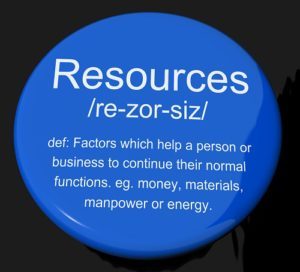— March 12, 2018

It may be a rude awakening, or a creeping uneasiness, but at some point, you and other leaders in your organization may decide to make a concerted effort to improve employee morale.
You might have been caught blindsided. You may have issued a survey with the expectation of stellar feedback, only to be caught in a dismal raking over the coals. Or a routine exit interview may have bypassed the usual niceties, and instead opened a Pandora’s Box of honest, on-target shortcomings.
Or you may start seeing patterns. A particular division is experiencing double digit turnover. Operations are inefficient. There is angry mumbling at the water cooler. Staff members are raising valid concerns which are conveniently being ignored, or met with empty platitudes. Leaders invite questions in open meetings, but respond sarcastically and demean serious questions from the staff. Line employees suffer through the annual holiday party, politely listening to speeches from leaders who don’t know their names and who ignore them the rest of the year.
So you decide to take action. And instead of the anticipated miracle of glowing joy in the ranks, morale takes a nosedive to depths never before seen. What happened?
Here is a list of “Dont’s,” in the quest to improve employee morale:
- Do not have a team-building activity. When morale is low, building a tower of drinking straws, or going bowling, or a paint ball getaway is a waste of time.
- Do not have an “all hands on deck” mandatory meeting. People are not going to be willing to tell you the truth, and risk repercussions. If they do tell the truth, it is probably not going to be what you want to hear, and you might not be able to respond appropriately in an open forum. In fact, don’t have any meeting without a clear purpose and direction.
- Don’t launch a morale-boosting initiative without consulting with key staff members, including both formal and informal leaders. Do not assume you know the underlying issues and the solution. If you did, morale wouldn’t be in the tank in the first place.
- Don’t disrespect or demean staff members. Especially, do not disrespect them in public. If someone asks a question, makes a sincere comment or raises an issue, do not respond with defensiveness or sarcasm. You tarnish your professionalism and isolate yourself from critical information. Once burned, staff members are likely to let you fall off a cliff, rather than warn you and risk humiliation.
- Don’t make decisions without knowing the facts. You may think you know the whole picture, but you may be wrong. You might see housekeeping staff drinking coffee at 8am when you arrive, and write them off as slackers. But did you know that they arrived at 6am, and have been on their hands and knees scrubbing coffee stains out of the carpeting? And, just as you take a coffee break at 10 am after a couple hours of work at a desk, they are taking a coffee break after a couple of hours of mopping and scrubbing? Know the full picture. Jumping to conclusions will not improve employee morale.
- Don’t be above the law. Honor all policies and procedures. If the deadline for timecards is noon on Tuesday, yours should be completed, signed, tallied and in by Tuesday, 10 am. Do not waltz in at 4pm and expect gratitude.
- Don’t make staff drop everything to compensate for your lack of planning. Give ample lead time, and consult with staff to create a workable timetable. “I need this now,” screams disrespect for your staff, and highlights your poor performance as a leader. Granted, there are legitimate fire drills, but hourly, weekly, monthly or even quarterly crises devastate employee morale.
- Do not hire unqualified managers. The heads of functional departments such as human resources, finance, fundraising, operations and others need to be experts in their fields, including legal ramifications. Staff members are extremely astute. Not only will staff in that specific area know the manager is not competent, but employees throughout the organization will be frustrated by the absence of sound leadership. You are opening the organization to unspoken assumptions of cronyism, which will not help improve employee morale.
- Do not tolerate abusive managers. “The beatings will continue until morale improves,” is not a sound strategy. Managers who get the job done “at any cost,” are an unaffordable cost, in turnover, morale and potential legal liability.
So how do you go about improving morale?
This is a much shorter list.
- Start from the bottom up. Meet with front line employees, one-on-one, or in a group of two or three, and ask for their input. The evening housekeeper or the billing clerk or the front desk recepetionist can be a source of profound insights. Work your way up, through managers. Choose a neutral location, such as a general meeting room, or, if they have an office, go to their office. Do not call them in on the carpet to see you. Be supportive, not defensive. Don’t shoot the messenger; they’re doing you a favor.
- Listen. There may be unsubstantiated grievances, but seek the core issues.
- Act. Take measured action to meet the discovered needs. You do not need to make a huge splash. Do something meaningful and substantive. Thank the staff for their input, and encourage their feedback. If the change is successful, it is their success. If the change is not successful, ask for their advice as to the next move.
- Respect. This starts from the top down. Be a respectful leader. Don’t fall back on the insincere, plastic smile, and the “Gee, I really, really appreciate you,” canned speech. Actions speak louder than words. Equally respect every individual in your organization. Know their names. Say “thank you,” and mean it. Go out of your way to help everyone. Pick up the gum wrapper on the floor, if you see it. Don’t be too important to help move a table, or wipe up a spill. Create a culture and expectation where everyone, from the CEO on down, sincerely respects, appreciates and supports every employee.
Morale is the lifeblood of your organization. Low morale results in inefficiency, friction, and turnover, and ultimately can lead to the demise of your business. Assess your corporate leadership, as the key to a strong corporate ethic and high employee morale.
Cultivate respect from the top of the organization down to every individual. Solicit input from the bottom up. Make a significant difference in the tone and mood of your workplace. Listen, take action, and create positive change. It’s never too late. Act now and take the first steps; act now to improve employee morale.
Business & Finance Articles on Business 2 Community
(48)
Report Post







